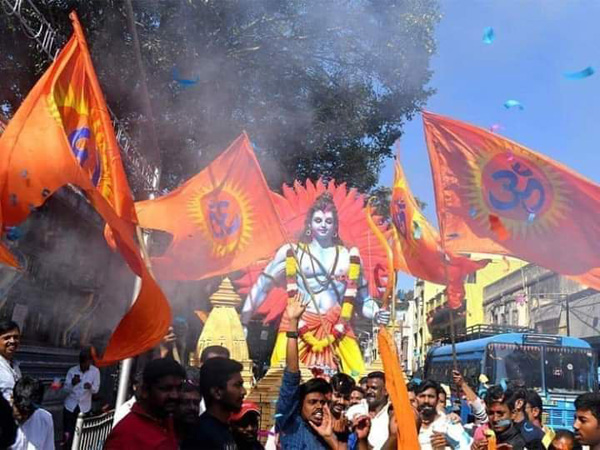Ayodhya Verdict: Ram Mandir To Be Constructed
Supreme Court Final Verdict On Ayodhya Land Dispute

The Supreme Court's ruling on the Ram Janmabhoomi–Babri Masjid land dispute in Ayodhya, marking another chapter in a centuries-old religious dispute that is the country’s most politically divisive row.
The case, which languished in the legal system for almost seven decades, finally sees a closure, as a five-judge Constitution Bench headed by Chief Justice Ranjan Gogoi pronounces its verdict.
Thousands of paramilitary force members and police have been deployed in Ayodhya, where the Babri Masjid mosque was razed in 1992 by hard-line Hindus who believe the site is the birthplace of Lord Ram.
The Supreme Court judges have unanimously dismissed the Shia Waqf Board's petition claiming rights on the Babri mosque on the disputed land in Ayodhya.
"Babri Masjid not constructed on vacant land. There was a structure underlying the disputed structure." "The underlying structure was not an Islamic structure," holds the Supreme Court.
"Both Hindu and Muslim witnesses indicate that Hindus and Muslims were offering prayers at the disputed site. Whether a belief is justified is beyond judicial inquiry. Once faith is established, courts should defer to it," the Supreme Court said.
Final Verdict: The disputed land in Ayodhya goes to the Hindus in its entirety for the construction of Ram Mandir. The Sunni Waqf Board will get five acres of alternate land, which will be accorded either by the state or the Centre.




 Supreme Court Historical Verdict on Ayodhya
Supreme Court Historical Verdict on Ayodhya Can Real Power Set Screens On fire?
Can Real Power Set Screens On fire?